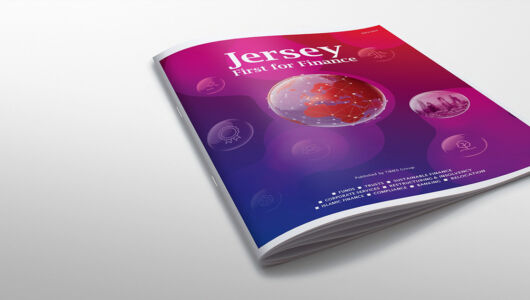This report from the Association of Charitable Foundations delves into the giving activities of the UK’s Top 300 foundations, which it says represents around 90% of the value of giving by philanthropically funded foundations.
Given the vast sums involved, it should be no surprise that families contributing to charitable and philanthropic causes are demanding greater transparency and accountability. The purpose of their giving is to make positive change but if resources are squandered or structures sanctioned, they are unlikely to see the change they want.
Highly effective family foundations, therefore, rely heavily on the expertise of a range of professional advisors to ensure that resources are going where intended. Key among these advisors are the financial and legal experts positioned to create structures that are legally compliant, while remaining flexible enough to meet the family’s needs.
As a fiduciary working closely with families to establish dynastic structures, hold business and personal wealth for succession planning and implement their philanthropic ambitions, we are dependent on the environment created by the Jersey Financial Services Commission (JFSC), the regulatory body for financial services in Jersey.
Jersey: A Preferred International Finance Centre (IFC)
Jersey has a long and respected history as an international finance centre (IFC), with some of the most robust and forward looking legislation relating to trusts, foundations and the establishment of charities. Jersey’s drive to ensure things are done properly means that even the most complex structures can benefit from the highest level of governance, decision making and oversight.
For decades, Jersey has led the way in adopting a regulatory regime which continues to be at the forefront of the industry. For example, the Trusts (Jersey) Law was first introduced in 1984 and has had numerous amendments throughout the years to ensure that it remains as relevant, robust and flexible as when it was first introduced.
Jersey has been implementing regulation and legislation long before it was even considered in many other international, or even onshore, financial centres, such as the Proceeds of Crime (Jersey) Law 1999 (POCL), updated as recently as this year, the Money Laundering (Jersey) Order 2008, the Terrorism (Jersey) Law 2002 (which replaced the Prevention of Terrorism (Jersey) Law 1996, and the Non-Profit Organisations (Jersey) Law 2008.
Regulating and Enabling Charitable Structures
The JFSC, which has been in operation since 1998, ensures that Jersey’s fiduciary service providers are licensed and regulated to a high standard and adhering to industry and international best practice and legislation, such as anti-money laundering, combatting financing of terrorism and the countering of proliferation financing (AML/CFT/CPF) frameworks.
This means that those establishing charitable structures in Jersey have peace of mind that the funds they settle are being applied for the charitable causes intended and that they are not being diverted to fund illegal activity. The recent updates to the law applicable to non-profit organisations (NPOs) have made the oversight of how funds are applied and if they are being used to correctly fund the charitable intentions, even more stringent. This is the case especially for ‘Prescribed NPOs’ – NPOs that raise or disburse more than £1,000 outside of Jersey, Guernsey, the Isle of Man, England and Wales and Scotland during the preceding 12-month period.
Given Jersey’s standing as a leading international finance centre, most charitable structures in Jersey would be established by international families and corporations and would fall into the Prescribed NPO category. This means that they will be required to prepare annual financial statements, have appropriate systems and controls to ensure that funds are fully accounted for, keep records of owners, controllers and significant donors and take reasonable steps to identify and confirm that associated NPOs and beneficiaries are not assisting, or being used to assist, terrorist activities.
Accommodating Complexity
The flexibility of Jersey’s laws which govern trusts, foundations and NPOs, means that the structures which are established can be bespoke in every sense. The purpose can be narrow or very wide and family members or specialists can be involved in the grant making process. Unique investment strategies can be incorporated – such as through reserved powers, specified asset clauses and assets settled with conditions – and wide ranging funding programmes can be implemented across the globe.
As a fiduciary, we are fortunate to see a range of structures with charitable intentions, from the very simplistic structures to large and complex charitable structures, such as a charitable foundation we have just established with very significant assets to benefit orphans in West Africa, or the Africa Women Impact Fund Foundation (AWIFF).
In our experience, the families establishing charitable structures may often have very little or no experience in creating and running such structures and probably little desire to manage every aspect of what is often a long-term project. With professional help, they are able to set up the right structure, implement proper governance processes and realise their charitable intentions. Although not all charitable structures have the same levels of complexity, it is essential to have the right professionals and advisors in place to support their efforts, ensure they remain compliant with local regulations and that their giving is having the desired impact.
Valued Assurance
Jersey has emerged as one of the leading financial centres as a result of its high governance standards. Its robust regulatory framework enhances Jersey’s reputation among multinational corporations and high net worth families that demand the highest level of accountability. Professional practitioners and their clients recognise that it is these high standards and the strong frameworks which safeguard their interests.
We welcome the positive changes introduced in Jersey to stay ahead with best practices and new challenges that may arise. Our clients, too, have the comfort that they have the necessary flexibility to continue doing their charitable work within a thorough regulatory environment.
At the end of the day, families and corporates across the world value the assurance that their charitable efforts are having the impact that they intended them to have.

